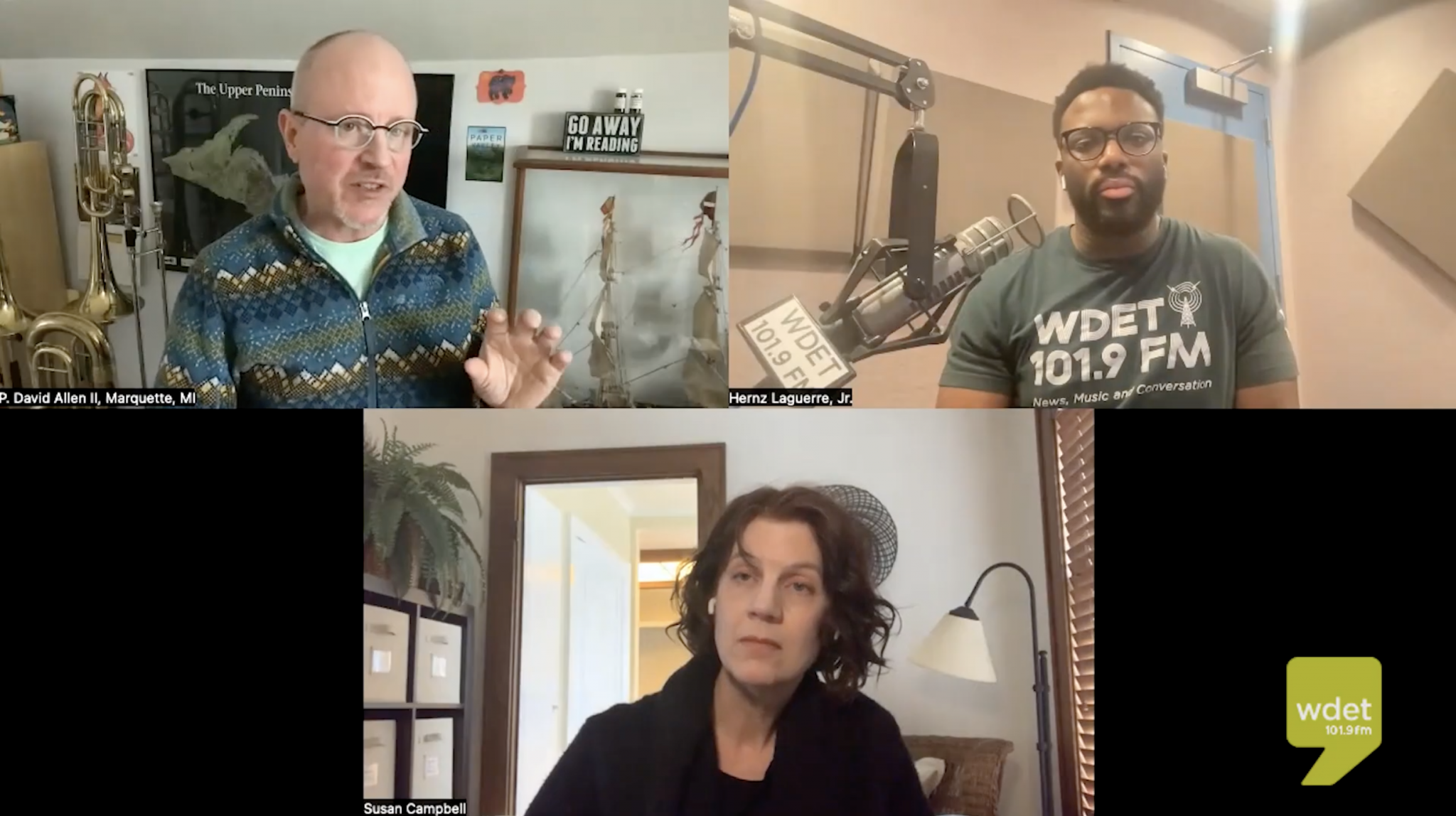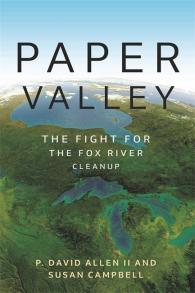New book ‘Paper Valley’ explains the clash between environmental science and politics
The writers take turns throughout “Paper Valley” talking about the challenge of fighting corporations over an invisible pollutant.

Retired wildlife biologist and environmental consultant David Allen II, and environmental journalist and communications specialist Susan Campbell released their book entitled, “Paper Valley: The Fight For the Fox River Cleanup.”
The book documents their experience of fighting against paper mill companies leaking toxic chemicals into the Great Lakes region.
Allen and Campbell spoke to WDET about the nearly 40-year process it took to fight for environmental cleanup.
The main concern is the ecological damage being done by paper companies polluting the Fox River, which flows in bodies of water such as Lake Michigan. Allen worked for the government and helped orchestrate the federal Superfund Law.
“This law taxes the chemical and petroleum industries to create the Superfund, which EPA [Environmental Protection Agency] and state cleanup agencies can use to clean up abandoned or uncontrolled hazardous waste sites even when no polluter can be found to pay,” says Allen.
“It ended up really being the dominant story that I covered up there because of the magnitude of the potential cleanup,” says Campbell.
“Most places where you have a superfund site, the place is pretty ruined,” Allen explains. “This was a place where the Fox River was polluting this giant area of Green Bay. [It] was this vibrant, beautiful mostly untouched area except for these constant flows of PCBs from the Fox River.”
PCB, which stands for polychlorinated biphenyls, is a chemical that can cause harm to human and environmental health. According to Allen, they are not easily detected. “PCBs are not like an oil spill. Instead, what makes this a dramatic sight is that it’s such a huge area…contaminated for many decades and hundreds of thousands of people fish in this place. Although it didn’t kill stuff outright, it caused a lot of subtle effects,” explains Allen.
Read: New study shows all fish tested from Huron and Rouge Rivers have PFAS
Campbell and Allen take turns throughout “Paper Valley” talking about the challenge of fighting against large corporations over an invisible pollutant.
“The environmental stories of the ’70s was really an easy story to tell. The fact is a lot of the environmental pollution today is much more insidious.”
The decades-old battle is told in a style where both Campbell and Allen share their experiences covering this story and the steps it took to get the public, participating agencies and the legal system on the same page about the cleanup process.

What makes this story of environmental science versus politics unique is the fact that “the good guys can win — and so can our environment,” as written by former Michigan policy director Dave Dempsey in the book. With environmental challenges periodically entering the national and local headlines, Allen and Campbell share the next fights ahead.
“The PFOs [perfluorooctanesulfonic acid] problem that is very active in both Wisconsin and Michigan, but also around the country, and this stuff is out in the water supply,” warns Allen.
Allen also points out the issue of evasive species in the Great Lakes, habitat destruction and pollution from farming as all things that are putting the environment at risk. He will visit Michigan for the sold-out Books on the Lake author luncheon April 29 at the Grosse Pointe Yacht Club to discuss “Paper Valley” with attendees.
Campbell added climate change and water availability being one of the biggest environmental threats to the planet and how vital it is for people to be led by facts.
“The most important thing is that people keep an ear and eye open for the facts,” she advises. “There is a lot of distortion when it comes to environmental issues and the fact is science is science.”
Trusted, accurate, up-to-date.
WDET strives to make our journalism accessible to everyone. As a public media institution, we maintain our journalistic integrity through independent support from readers like you. If you value WDET as your source of news, music and conversation, please make a gift today.

